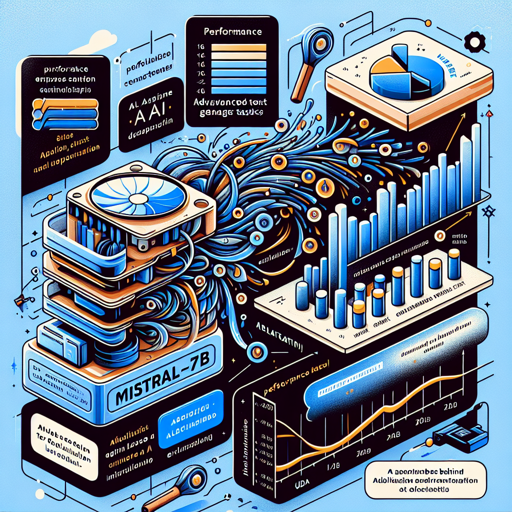Welcome to the wonderful world of AI optimization! In this guide, we will explore how to utilize the optimized version of the Mistral-7B model, which has been specifically designed for performance boosts through ONNX Runtime’s CUDA execution provider. Get ready to accelerate your inference processes!
What is Mistral-7B?
Mistral-7B is a pretrained generative text model developed by MistralAI, available under the Apache 2.0 License. This model serves as the powerhouse behind advanced natural language processing tasks, enabling you to generate coherent and contextually relevant text.
Performance Insights
Before we dive into the practicalities of using the Mistral-7B model, let’s take a moment to appreciate its performance metrics. When comparing latency for token generation across various batch sizes and prompt lengths on the NVIDIA A100-SXM4-80GB GPU, you’ll find significant differences in efficiency:
Prompt Length Batch Size PyTorch 2.1 torch.compile ONNX Runtime CUDA
------------------------------------------------------------
32 1 32.58ms 12.08ms
256 1 54.54ms 23.20ms
1024 1 100.6ms 77.49ms
2048 1 236.8ms 144.99ms
32 4 63.71ms 15.32ms
256 4 86.74ms 75.94ms
1024 4 380.2ms 273.9ms
2048 4 NA 554.5msThis table illustrates just how much faster ONNX Runtime can execute various token generations, making it an essential toolbox for enhancing machine learning workflows.
Step-by-Step Guide to Usage
To start using Mistral-7B for inference, follow these straightforward steps:
- Clone the ONNX Runtime repository:
git clone https://github.com/microsoft/onnxruntime - Navigate to the cloned directory:
cd onnxruntime - Install the required dependencies:
python3 -m pip install -r onnxruntime/python/tools/transformers/models/llama/requirements-cuda.txt
Inference Example
Here’s a simplified code snippet to help you get started with inference:
from optimum.onnxruntime import ORTModelForCausalLM
from onnxruntime import InferenceSession
from transformers import AutoConfig, AutoTokenizer
sess = InferenceSession("Mistral-7B-v0.1.onnx", providers=[CUDAExecutionProvider])
config = AutoConfig.from_pretrained("mistralai/Mistral-7B-v0.1")
model = ORTModelForCausalLM(sess, config, use_cache=True, use_io_binding=True)
tokenizer = AutoTokenizer.from_pretrained("mistralai/Mistral-7B-v0.1")
inputs = tokenizer("Instruct: What is a fermi paradox?\nOutput:", return_tensors='pt')
outputs = model.generate(**inputs)
print(tokenizer.decode(outputs[0], skip_special_tokens=True))
This example calls upon the model to generate answers based on a prompt, showcasing the elegance of AI in understanding and generating human-like responses.
Troubleshooting
If you encounter any issues, here are some troubleshooting tips:
- Ensure that you have the correct versions of Python and the necessary libraries installed.
- Verify that you are using a compatible GPU and that CUDA is properly configured.
- Check the model file path if an error indicates it cannot find `Mistral-7B-v0.1.onnx`.
For more insights, updates, or to collaborate on AI development projects, stay connected with fxis.ai.
Conclusion
At fxis.ai, we believe that such advancements are crucial for the future of AI, as they enable more comprehensive and effective solutions. Our team is continually exploring new methodologies to push the envelope in artificial intelligence, ensuring that our clients benefit from the latest technological innovations.

